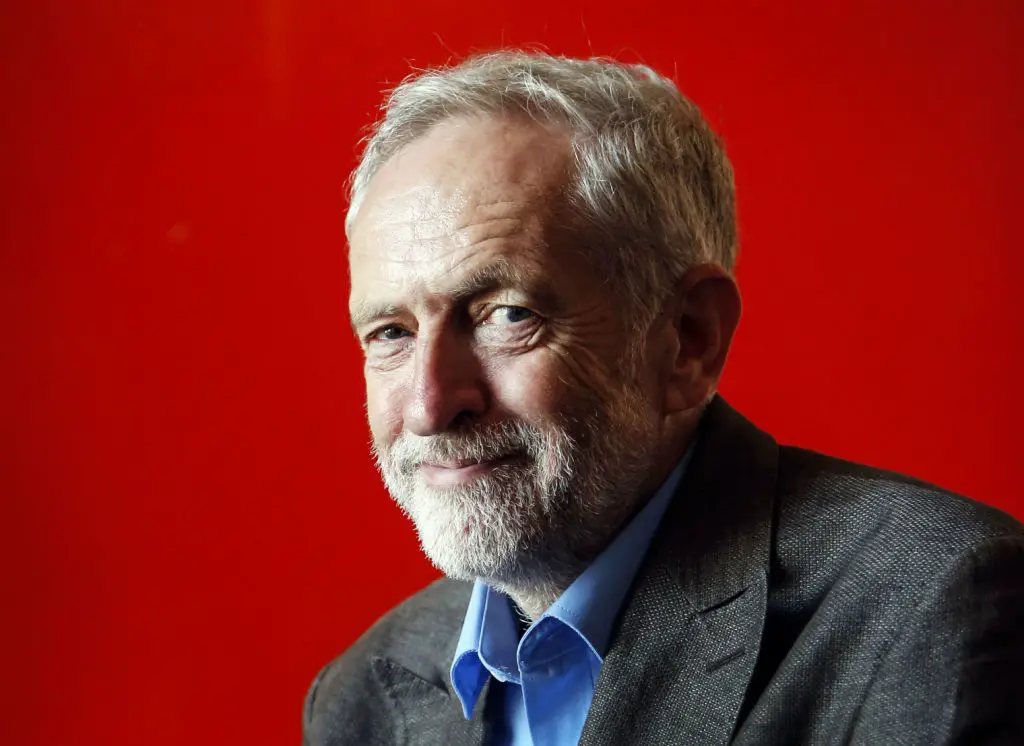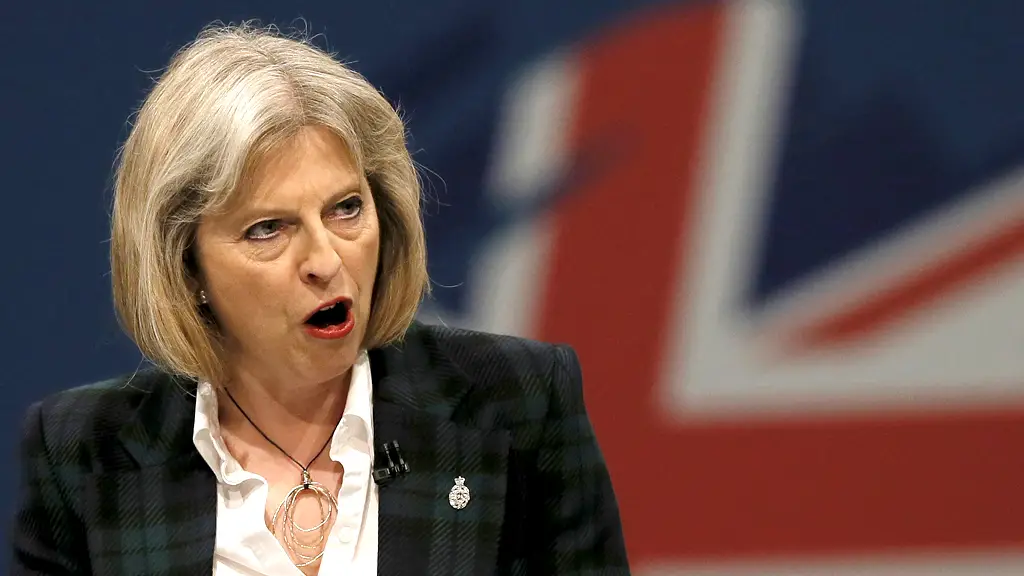So, the past few weeks in the UK have been pretty interesting. And by interesting I mean, well, a little batshit crazy. First, the pro-Brexit vote went entirely against anyone’s expectations, even the usually reliable betting markets. But it was going to be okay—the UK’s political establishment was bound to pull through and keep things calm, right? I mean, yeah, the British pound fell to a thirty-year low and markets plummeted, but there was still bound to be a stable government…right?
Well, things didn’t quite go according to plan. This next bit sounds like something out of Shakespeare. David Cameron, betrayed by his close friends Michael Gove and Boris Johnson—both of whom were prominent Brexit campaigners—stepped down, with his successor bound to be chosen by what was meant to be a pretty tense leadership election in the Conservative Party. This move in and of itself seemed like a political masterstroke. It had been clear by the time the results poured in that Gove, Johnson and the other campaigners for Brexit had never actually expected their side to win and thus had no real plan for what came afterwards. They just used it as a chance to accumulate their own political capital, even if it meant standing against Cameron, their former friend.
Johnson and others did not want Cameron to step down, regardless of the result, but he did so anyway. Why? Well, it made life difficult for Gove and Johnson—suddenly, they were going to be the ones who had to actually take charge of the country and choose when they were going to invoke Article 50 and kickstart the Brexit process. And that was bound to make them a little unpopular.
Regardless, Johnson jumped into the race—Gove agreed to stay out and support his ally. Except, literally two days after Johnson announced his candidacy for leadership of the Tories, Gove decided to jump in as well, declaring that Johnson was unfit to represent the UK abroad. Johnson immediately withdrew his candidacy, and the British press was presumably making millions selling newspapers about how cunning Gove was. Until, of course, it became apparent that his colleagues in Parliament didn’t think too highly of this betrayal, and he received an astoundingly low amount of nominations. He dropped out of the race. And within a week, what was meant to be a months-long contest was over. Theresa May was the last candidate left standing.
So, what’s she like? Well, her inaugural speech made it seem like she was an awesome progressive. She called for a more compassionate Tory government, dedicated to the working class and to bridging the divides in a country that had suddenly seen the flaring up of political violence and racial attacks as a result of what was a pretty bitter campaign on the EU referendum. This seemed like just what the country needed: a strong leader that promised to heal the country and steer it towards a stable future, with May promising not to invoke Article 50 until next year, making sure to prepare the country for any potential economic shocks in the meantime.
And, like any great politician, May has a pretty interesting life-story as well. She wasn’t part of the boys-club of Cameron, Osborne and Gove; in fact, she is one of the few prominent women in the entire Party. She comes from a relatively humble background in Sussex and her parents were dead by the time she was 25.
It seems, for the most part, that May’s success can really only be attributed to herself, having risen from working in bakeries every Saturday to becoming an MP in 1997. She joined Cameron’s cabinet in 2010 and was pretty competent in her job, having been the longest-serving Home Secretary in more than a century.
This all sounds pretty nice and dandy. As a foreign student in the UK, though, I was already pretty similar with Theresa May. As Home Secretary (think a mix between Secretary of Homeland Security and the head of the FBI, essentially) she had really made immigration a massive pain in the ass for everyone, from students to health-care workers. So that wasn’t a great first impression. But I went and asked a couple of my British friends what they thought, hoping to perhaps glean more information.
There wasn’t a lot of positive feedback.
One of my friends, a self-described “centrist,” told me that Theresa May was perhaps “the least unlikeable person in a generally unlikeable party. She’s more unlikeable than George Osborne! Didn’t even think that was possible, to be honest…” Another friend, this one a proud socialist, summed her up with a variety of swearing, in typical British fashion. But both of them agreed that Theresa May was not what she seemed—she is an authoritarian leader that may very well threaten the civil liberties and freedoms of her citizens.
May’s views on immigration aren’t even scratching the surface. She once went on record calling for the repeal of the European Convention on Human Rights in the UK, as it went against British security interests. You know, the Declaration that calls for things like the right to a fair trial and privacy and freedom from torture and freedom of religion…
But she is perhaps most (in)famous for her stance on the internet and spying. Contrary to popular belief, the NSA isn’t all that bad compared to other security agencies—even Edward Snowden once went on record calling the GCHQ, the NSA’s British equivalent, far worse. Well, Theresa May is at the heart of that issue, in a way.
She has repeatedly called for the embrace of what the British call the “Snoopers’ Charter,” a bill that would call for the monitoring of everything British citizens do on the internet, from web browsing to emails. Her government also seeks to completely neuter the efficacy of encryption in the country, and is generally a little authoritarian when it comes to domestic security.
So my friends didn’t seem particularly keen on a Theresa May premiership. And, to make matters worse, within the first week or so of her leadership, she made some pretty startling moves, from dismantling the Department for Energy and Climate Change to making Boris Johnson the Foreign Secretary.
But what does this all mean for the world? I think May and the sort of leadership she represents—anti-immigration, authoritarian, somewhat nationalistic—is indicative of more of a global trend. From France to Denmark to India to here at home in the US, it seems society is growing rather scared of terrorism, immigration patterns, and globalization in general. People seem to be afraid, and the leaders and political parties they choose reflect that.
So what’s the alternative?

Well, in the UK itself, Jeremy Corbyn’s Labour Party is currently engaged in what amounts to a civil war, with Corbyn’s colleagues in Parliament rebelling against him, against the wishes of the Party’s rank-and-file members. But I suspect that Corbyn will pull through. And, as much as the media in the UK and abroad seems to lambast the guy for being a little too far-left, many of his policies seem to, well, make some sense. He wants to heal a country that, for the last few decades, has as the British say “really shafted” the poor. As such, Corbyn’s economic agenda includes encouraging investment in northern England and other downtrodden areas via regional state-owned banks, infrastructural projects and clamping down on the excesses of the financial sector.
The reality of the matter is this: people are turning to authoritarian, xenophobic leaders around the world not because (at least, I hope not) they are racist or fascist or any other epithet. They are doing so because they feel like parties like the Democrats, Labour, the French Socialists and more have entirely abandoned them. So this puts May’s speech that I mentioned earlier in perspective. She is speaking to a working-class audience that feels like none of the other parties have even bothered to address their ills. It may very well be that May doesn’t actually have their best interests at heart, but she is at least taking the time to actually acknowledge that problems exist.
So even though the world is turning towards May and leaders like her, perhaps the next global trend will turn into something more along the lines of Corbyn, or at least what he represents: a promise to react to our problems not with a loud toughness, but with compassion and understanding. In the words of one of my other British friends: “He’s a pretty good bloke, yeah.”












